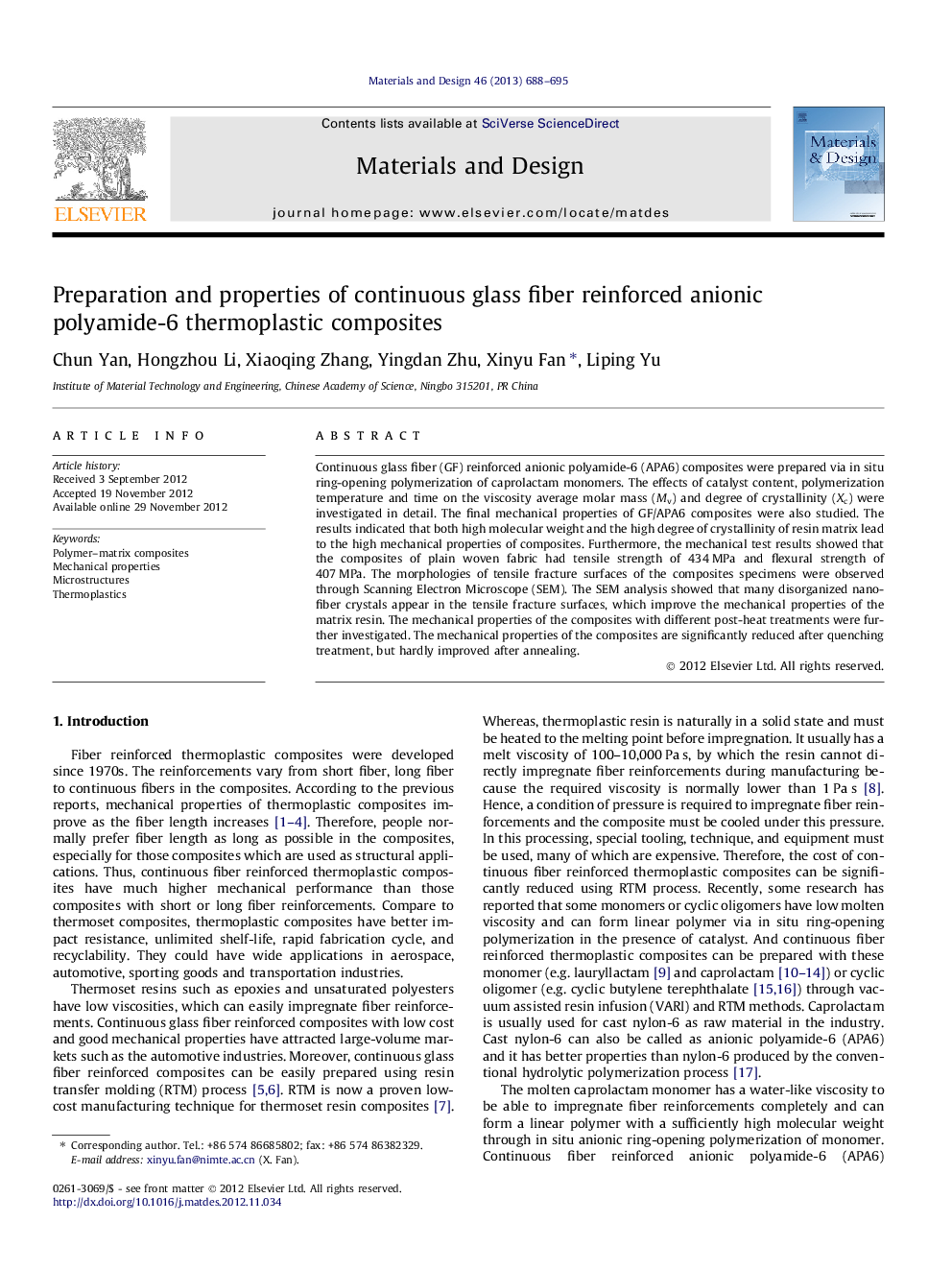| Article ID | Journal | Published Year | Pages | File Type |
|---|---|---|---|---|
| 830198 | Materials & Design (1980-2015) | 2013 | 8 Pages |
Continuous glass fiber (GF) reinforced anionic polyamide-6 (APA6) composites were prepared via in situ ring-opening polymerization of caprolactam monomers. The effects of catalyst content, polymerization temperature and time on the viscosity average molar mass (Mv) and degree of crystallinity (Xc) were investigated in detail. The final mechanical properties of GF/APA6 composites were also studied. The results indicated that both high molecular weight and the high degree of crystallinity of resin matrix lead to the high mechanical properties of composites. Furthermore, the mechanical test results showed that the composites of plain woven fabric had tensile strength of 434 MPa and flexural strength of 407 MPa. The morphologies of tensile fracture surfaces of the composites specimens were observed through Scanning Electron Microscope (SEM). The SEM analysis showed that many disorganized nano-fiber crystals appear in the tensile fracture surfaces, which improve the mechanical properties of the matrix resin. The mechanical properties of the composites with different post-heat treatments were further investigated. The mechanical properties of the composites are significantly reduced after quenching treatment, but hardly improved after annealing.
► GF/APA6 composites have better mechanical properties. ► The high molecular weight of resin matrix leads to the high mechanical properties. ► Many disorganized nano-fiber crystals appear in the tensile fracture surfaces. ► The mechanical properties of the composites decrease after quenching treatment.
